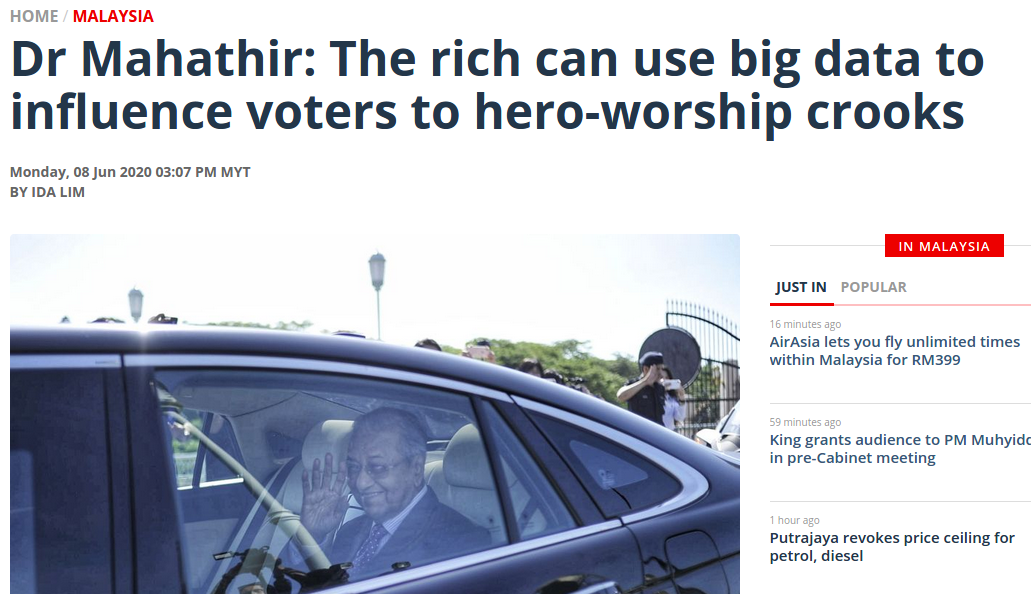Updates on Digital Rights
Situation in Malaysia
By Dr. Jun-E Tan
https://slides.com/jun-e/iffsea-malaysia
Background
-
Ongoing political crisis, whereby coalition government of Pakatan Harapan (voted in in 2018) was ousted without a general election, in February 2020
-
Current incumbent has only a thin slice of majority. History of draconian rule, without an election manifesto to keep them accountable
-
Crackdown on refugees and migrants due to Covid-19
Digital Rights Issues in the Time of Covid-19
- Mass surveillance for public health
- Prosecutions connected to fake news on the coronavirus
- Policy direction: move towards digital space
Current data privacy protections
-
Malaysia is fifth worst country for privacy protections and government surveillance, out of 47 countries studied (Comparitech, 2019) - bottom five are Malaysia, Thailand, India, Russia, China
- Extensive data collection on compulsory national ID card
- Facial recognition (e.g. border control) and CCTV widely used but few safeguards
- Data breaches that involved financial and medical details
- Inter-governmental agency data sharing is in place (MyGDX)
- Personal Data Protection Act under process of review (source)
- Advisory issued for data collection during the Covid-19 conditional movement control order can be viewed here
Coronavirus Surveillance
-
Contact tracing apps:
- MySejahtera: Health self-assessment and access to latest information. Used by Ministry of Health to track persons under surveillance.
- GerakMalaysia: Location-based, used by police to manage limited interstate travel (processing applications as well)
- MyTrace: Bluetooth technology determines duration and distance from one person to another. Location information is collected (?).
- SELangkah: Visitor registration system in the state of Selangor, using QR code
- Drones used to monitor places under the enhanced movement control order (EMCO)
- Facial recognition and thermal scanning software used (source)
- Google Forms used to collect health data during quarantine, no opting out (source)
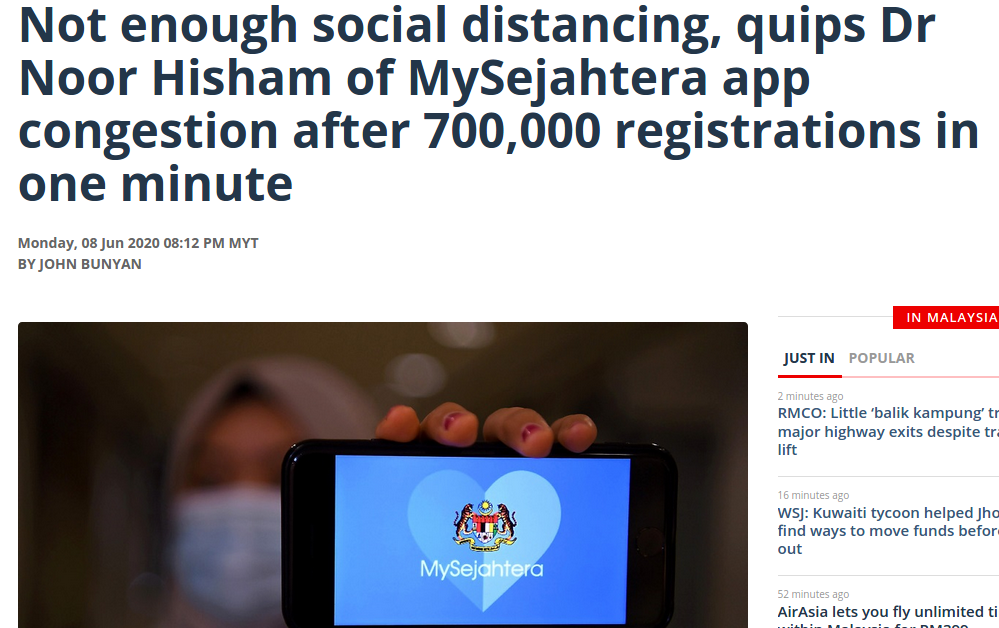
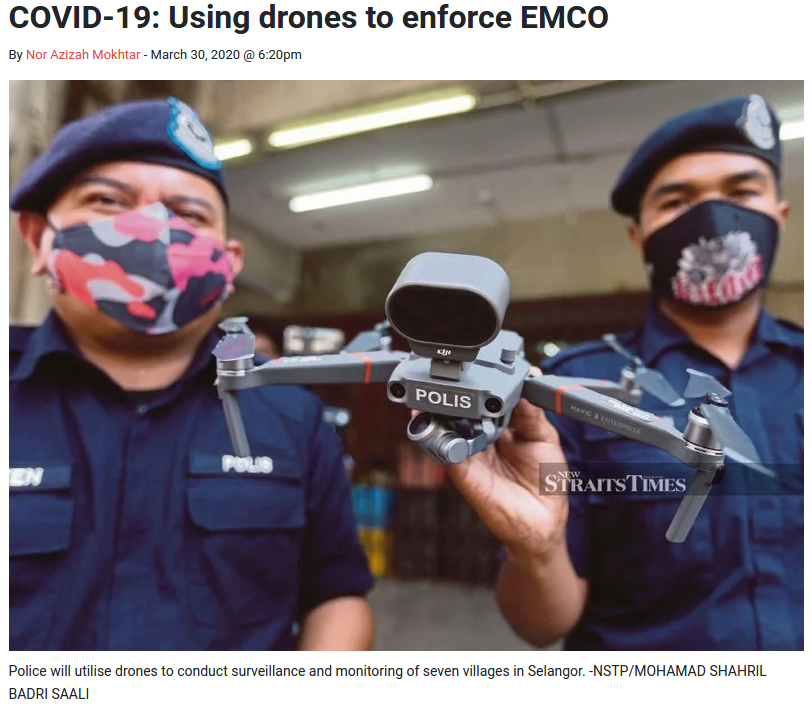
Restrictions on FoE online
-
Anti-Fake News Act was scrapped in Dec 2019, but individuals are still prosecuted for spreading dis/misinformation under other laws
- 268 investigations of Covid-related fake news. 178 are still under investigation; 30 have been charged in court; 11 were issued with warning notices; and 18 people pleaded guilty to the offence under Section 233 of the Communications and Multimedia Act 1998. (source)
- Covid-19 being used as an excuse by political parties to bring back the Anti-Fake News Act
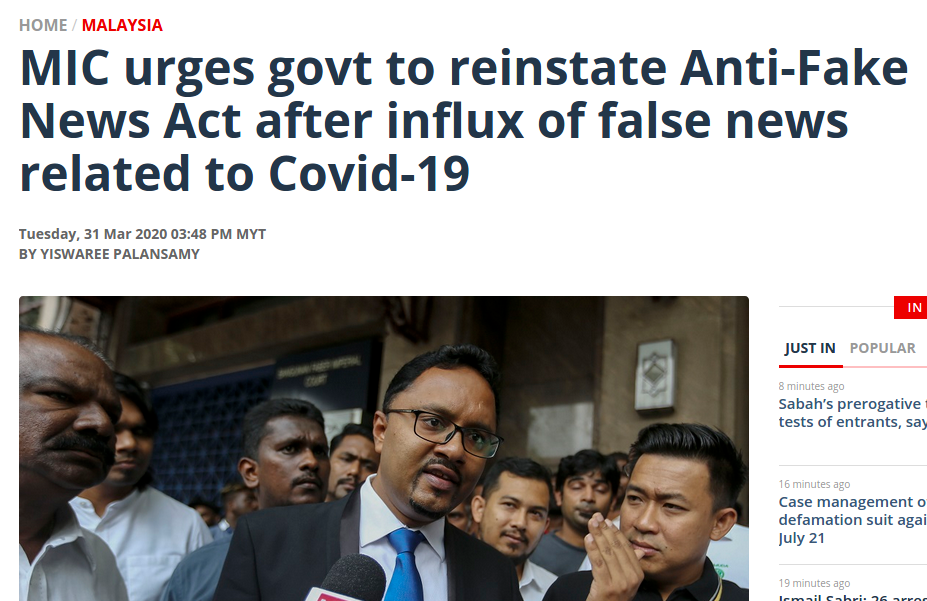
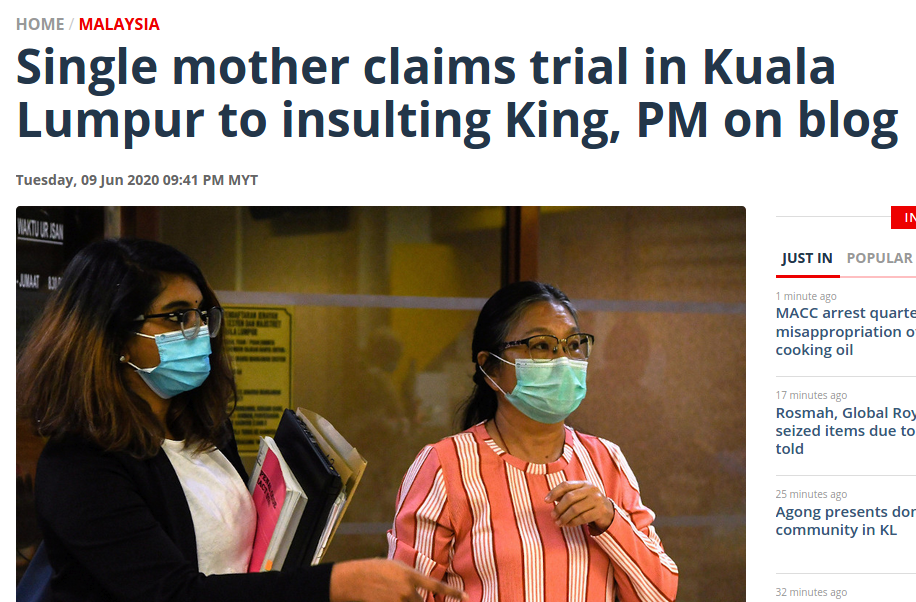
Moving towards the digital
